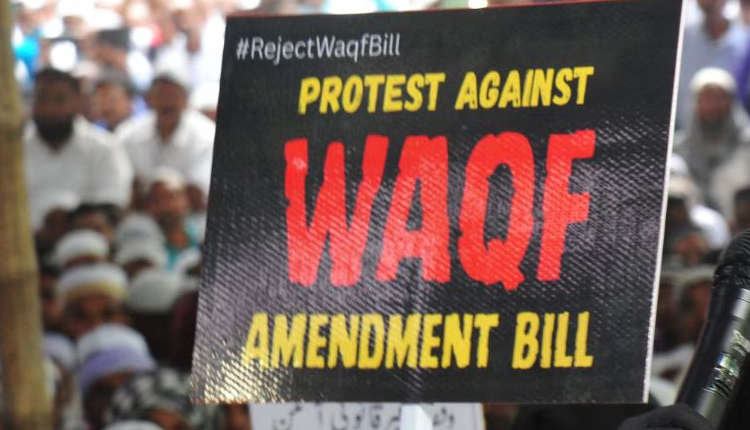New Delhi: With rising resistance against the Waqf Amendment Act from many quarters, Muslim organisations in India are ganging up to oppose the Act on the ground and also to voice protest against its provisions. The events will include meetings and rallies across the country, and they will last for 15 days. Major events will be held in the big cities.
The first one is the Waqf Defence Conference in Delhi on April 24 at the India Islamic Centre, which will be attended by Jamaat-e-Islami and the Legal Association for Protection of Civil Rights (APCR). Although Maulana Arshad Madani, the president of Jamiat Ulema-e-Hind, will be absent on health grounds, his message will be read by other leaders of the group. How can we talk about the Waqf Amendment Act and its implications for the Muslim community as well as the means for resistance?
Scheduled for the next few days are more protests. There will be a Waqf Defence Conference in Kolkata on April 26 and another meeting of Muslim organisations in Maharashtra on April 27. On April 30, there will be a nationwide protest known as ‘Batti Gul’, where Muslims from all over the country will turn off the lights at 9 PM in protest of the law.
Muslim institutions will maintain the agitation on May 1 in Jamshedpur, and an executive meeting of Jamiat Ulema-e-Hind will take place from May 3-4 in Delhi instead of Deoband. An extensive Waqf Save Program will also be held on 7 May at Delhi’s Ramlila Ground, which will be attended by hundreds of thousands of Muslims and supporters.
Although protests have been announced by various religious organisations, Maulana Arshad Madni has called on Muslims to “be mindful of how they protest” and that protesting should be done “peacefully”. In today’s political climate, such protests in the streets might be law and order problems and could even harm the community, he warned. He urged legal ways to challenge the law and said that Jamiat Ulema-e-Hind has always used legal means to fight against unjust decisions.
The Waqf Amendment Bill, 2024: Bill No. 117 of 2024 was introduced to the Indian Parliament on April 2, 2025, and passed through a contentious debate in both houses. On April 5, 2025, President Droupadi Murmu enacted the bill, resulting in its transformation into law. Muslim organisations are worried about the legislation, with many asserting that it violates their religious and civil rights.
The Jamiat Ulema-e-Hind, one of India’s largest Muslim bodies, is leading the fight against this legislation. As well as being the head of Jamiat, Maulana Arshad Madani is also the vice president of the All India Muslim Personal Law Board (AIMPLB).



Comments are closed.